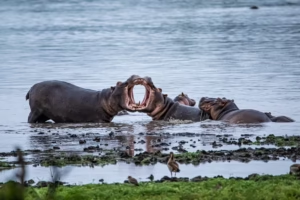A Lesson From the Henrietta Lacks Story: Science Needs Your Cells
When we think about the heroes behind modern medical breakthroughs, we often picture scientists in white coats, research teams in high-tech labs, or even pharmaceutical companies funding large-scale trials. But the story of Henrietta Lacks reminds us that ordinary people, sometimes without their knowledge, have shaped medicine in ways that have saved millions of lives — and it also reminds us why trust, ethics, and informed consent matter so deeply in medical science.

Who Was Henrietta Lacks?
In 1951, Henrietta Lacks was a 31-year-old African-American mother of five living near Baltimore, Maryland. She went to Johns Hopkins Hospital — then one of the only hospitals in the area that treated Black patients — complaining of vaginal bleeding. Doctors discovered she had an aggressive form of cervical cancer. While treating her, they took a small sample of her tumor cells without her knowledge or consent — a common practice at the time.
Her cells were given to Dr. George Gey, a researcher trying to grow human cells outside the body to study diseases. Unlike all other samples he and others had tried, Henrietta’s cells did something remarkable: they didn’t die. Instead, they doubled every 20–24 hours. They were, in essence, immortal.
These cells, now famously known as HeLa cells, became the first immortal human cell line. They would go on to change medicine forever.
The Immortal Cells That Changed the World
Why did the HeLa cells matter so much? Before HeLa, scientists struggled to keep human cells alive long enough to conduct experiments. Animal models, like mice, were helpful but limited. HeLa cells were durable, easy to grow, and easily shared among labs around the world.
- HeLa cells have contributed to countless medical breakthroughs, including:
- Developing the polio vaccine, which saved millions of children from paralysis.
- Research into cancer treatments, HIV/AIDS, and the effects of radiation and toxic substances.
- Advancing in vitro fertilization (IVF) techniques.
- Studying viruses like measles, mumps, and COVID-19.
- Supporting drug development and even the mapping of the human genome.
Today, there are more than 50 million metric tons of HeLa cells that have been grown since that first sample. They have been used in more than 70,000 scientific studies.
A Story of Exploitation — and the Birth of Bioethics
The scientific legacy of Henrietta Lacks is extraordinary — but her story is also a painful lesson about ethics. Henrietta’s cells were taken without her consent, and her family did not learn about their global use until the 1970s, more than 20 years after her death. Meanwhile, commercial companies made millions selling HeLa cells, while her descendants struggled with poverty and lack of access to healthcare.
This case, along with other historical abuses like the Tuskegee syphilis study, fueled calls for stricter ethical guidelines in research. In the U.S., the Belmont Report of 1979 established key principles of respect for persons, beneficence, and justice, laying the foundation for modern informed consent.
Today, if your tissue, blood, or cells are used for research, you must be informed and give permission. Institutional Review Boards (IRBs) now oversee research studies to protect patients’ rights.
Why Science Still Needs Your Cells
Modern medical science still relies on donated biological material — including blood samples, tumor biopsies, and even genetic information. Clinical trials cannot advance without patients willing to share part of themselves to help others.
For example:
Cancer patients often donate tumor samples so researchers can study why certain treatments work.
Blood donors provide lifesaving blood and plasma for emergencies and transfusions.
Genetic testing volunteers help scientists understand rare diseases and develop targeted treatments.
With new technologies like biobanking and personalized medicine, the potential to save lives grows every day — but so does the need for trust between scientists and the public.
The Legacy of Henrietta Lacks Lives On
In recent years, Henrietta Lacks’s family has pushed for greater recognition and accountability. In 2013, the National Institutes of Health (NIH) reached an agreement with her family to give them some control over how HeLa genetic data is used. In 2021, on the 70th anniversary of her death, the World Health Organization honored Henrietta Lacks for her contribution to science.
Her story is now taught in schools and ethics classes around the world. Books like The Immortal Life of Henrietta Lacks by Rebecca Skloot have brought her legacy to a wider audience, reminding us that behind every vial in a lab, there is a human story.
A Lesson for the Future
The Henrietta Lacks story challenges us to ask: How do we balance scientific progress with human rights? How do we ensure that those who contribute to life-changing discoveries — especially marginalized communities — are treated with respect, dignity, and fairness?
As science continues to advance, one thing remains true: Your cells, your DNA, your participation can help save lives. But it must always be your choice. Trust, transparency, and consent must never be optional — they are the foundation of ethical, inclusive, and truly transformative science.
Share this content:












